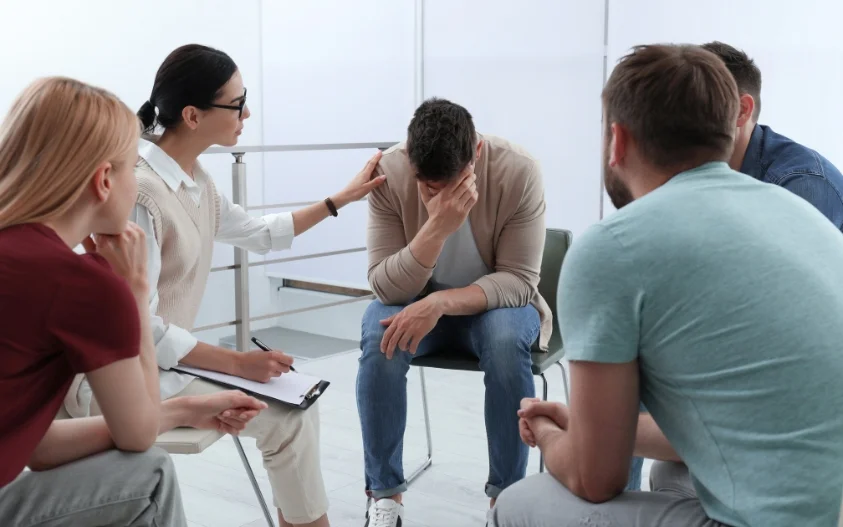24/7 Helpline:
(866) 899-221924/7 Helpline:
(866) 899-2219
Learn more about Bipolar Disorder Treatment centers in Rogers County

Other Insurance Options

American Behavioral

Covered California

Cigna

Sliding scale payment assistance

Horizon Healthcare Service

GEHA

PHCS Network

Magellan Health

Aetna

CareFirst

UMR

State Farm

Access to Recovery (ATR) Voucher

Regence

Excellus

ComPsych

Health Choice

Magellan

Medical Mutual of Ohio

Kaiser Permanente

Rogers County Drug Abuse Program
Rogers County Drug Abuse Program is a private rehab located in Claremore, Oklahoma. Rogers County Dr...

Hope Center Ministries – Claremore Women’s Center
Hope Center Ministries - Women's Center is a rehab facility, specializes in the treatment of alcohol...



















































Human Skills and Resources
Human Skills and Resources is a private rehab located in Claremore, Oklahoma. Human Skills and Resou...

Grand Lake Mental Health Center
Grand Lake Mental Health Center is a private rehab located in Claremore, Oklahoma. Grand Lake Mental...

Grand Lake Mental Health Center – South Highway 88
Grand Lake Mental Health Center – South Highway 88 is a private rehab located in Claremore, Oklahoma...

YouthCare of Oklahoma
YouthCare of Oklahoma is an outpatient clinic that provides mental health and substance use treatmen...

AA – Alcoholics Anonymous
AA – Alcoholics Anonymous is a private rehab located in Claremore, Oklahoma. AA – Alcoholics Anonymo...
























